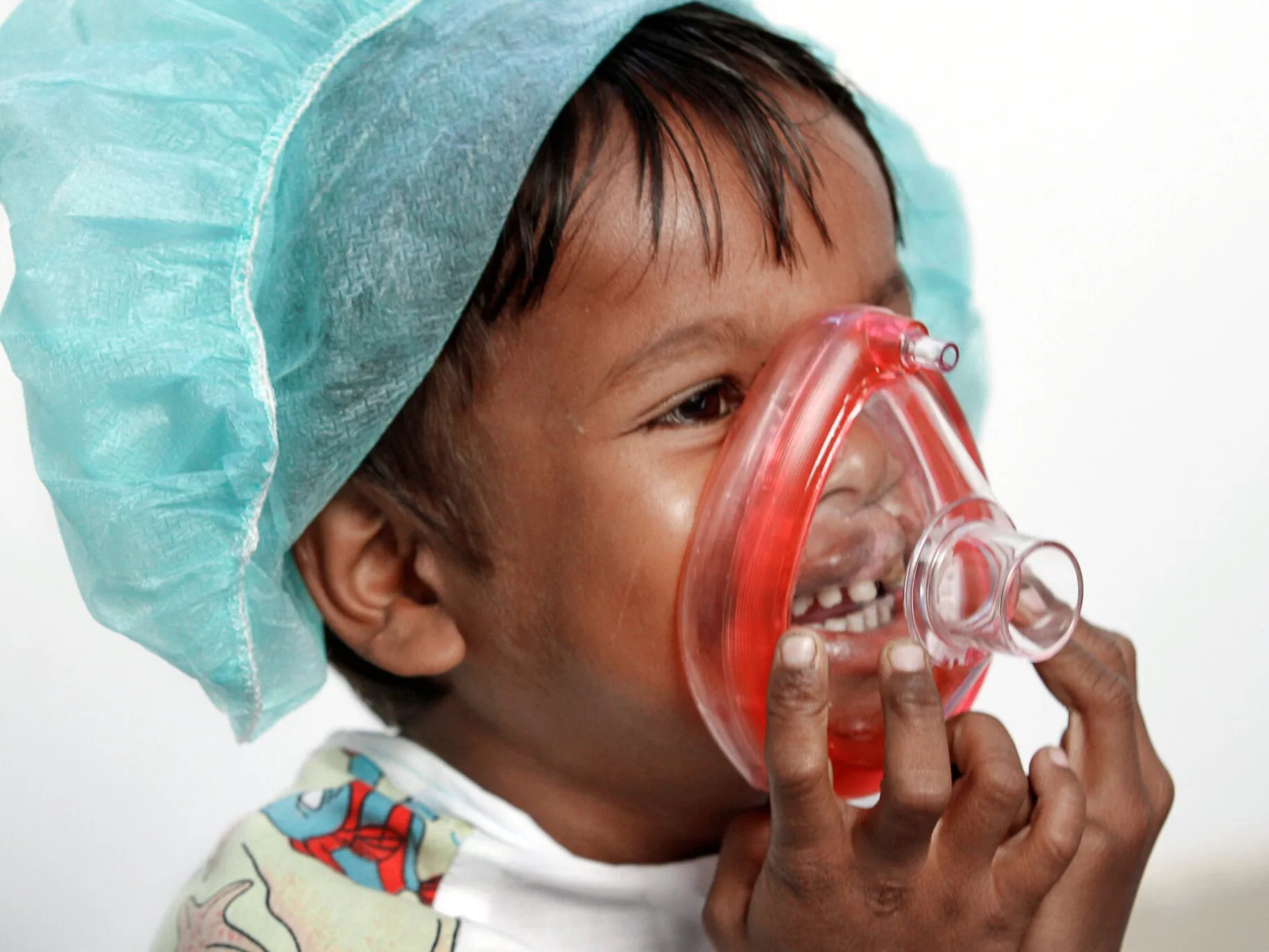Care Providers
Completeness of Care: Anesthesia
Operation Smile anesthesia providers ensure the safety of our patients by conducting medical evaluations, administering safe anesthesia and responding to any potential emergencies during surgery.
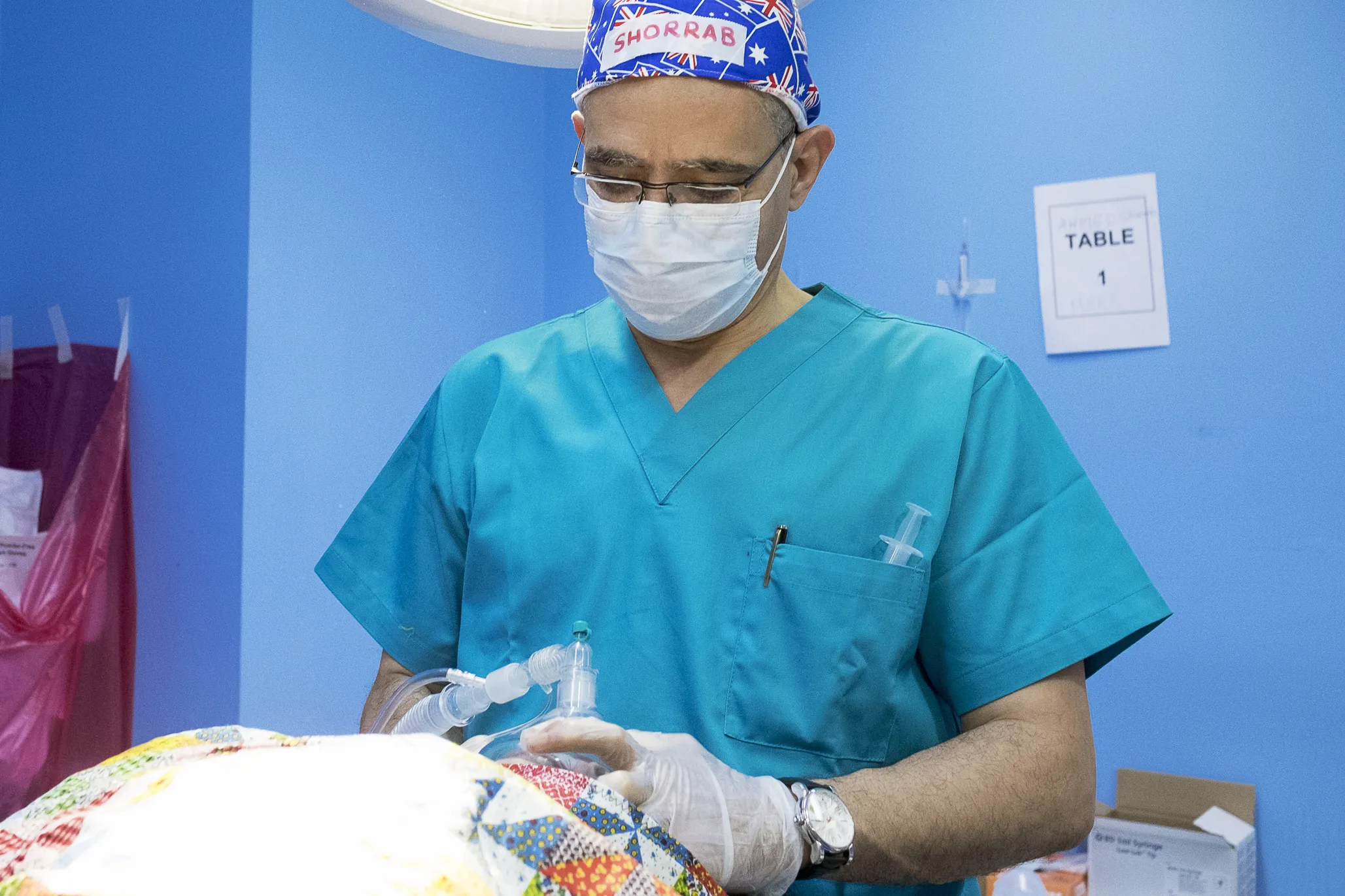
Over the years, many analogies have been drawn between anesthesiologists and airline pilots to contextualize the immense responsibilities of their duties.
The most common parallel is assigned to the most dangerous aspect of their work – for pilots, it’s the takeoff and landing of the airliner – for anesthesiologists, it’s the patient’s induction and emergence during general anesthesia.
And that’s for good reason: Both have people’s lives in their hands.
That’s why Operation Smile utilizes the talents of some of the world’s most highly skilled and highly trained anesthesiologists and certified nurse anesthetists to volunteer at our medical programs.
In the most resource-poor areas of the countries where we work, the everyday administration of anesthesia can pose serious risks to the health and lives of surgical patients, depending on the setting. This can be due to the lack of skilled professionals, adequate infrastructure, facilities and equipment, or any combination of these factors.
The results are alarming. According to the World Health Organization, the risk of dying from anesthesia complications in resource-poor environments is 100 to 1,000 times higher than in high-resource environments. In some parts of sub-Saharan Africa, it’s reported that one in every 150 patients die during general anesthesia.
Acknowledging the life-and-death stakes that come with this territory, Operation Smile’s Global Standards of Care outlines stringent protocol that’s carried out by credentialed, trusted and experienced anesthesia providers using only the highest-quality anesthetics.
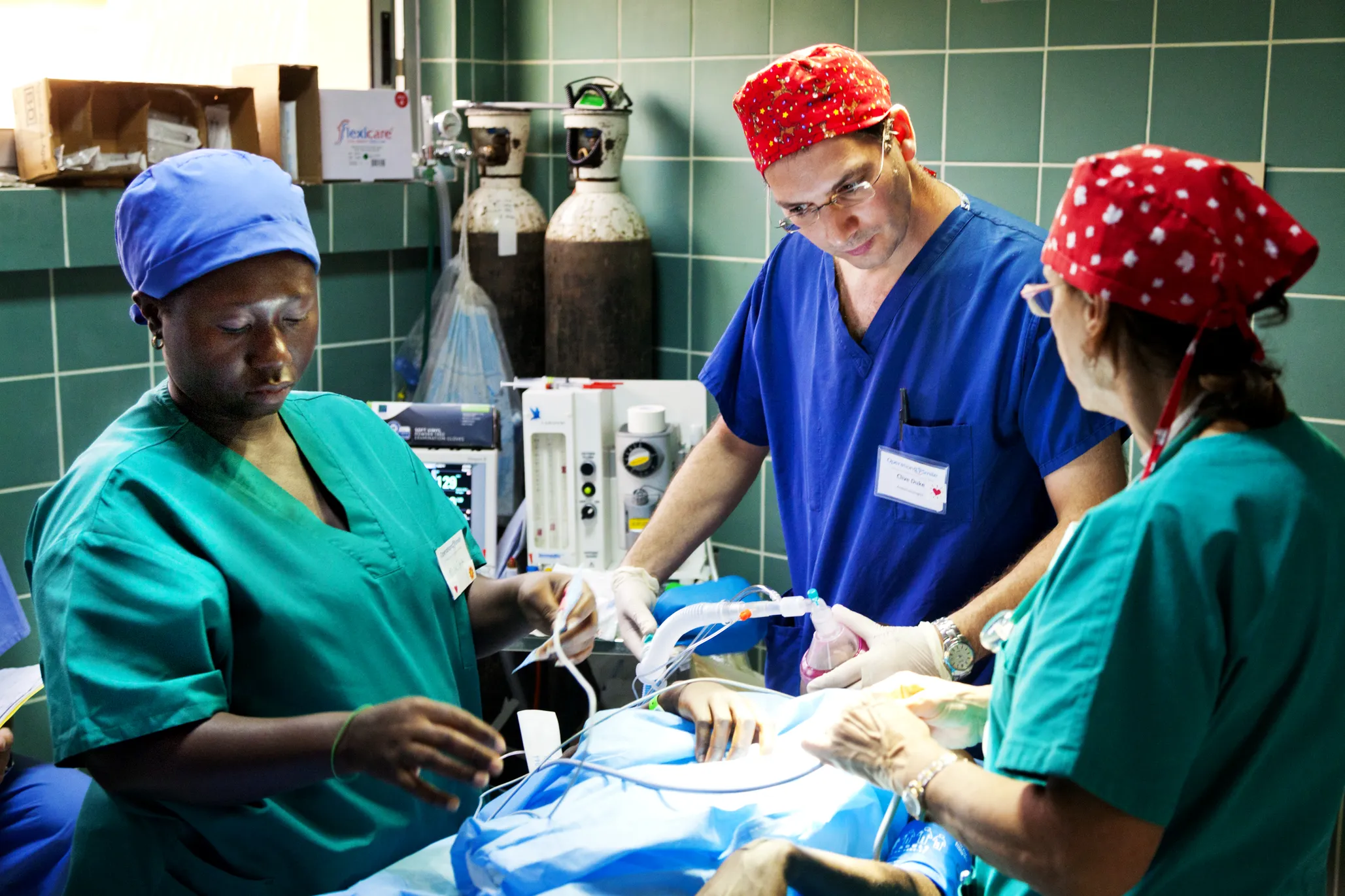
That’s what attracted Dr. Clive Duke, an anesthesiologist and educator at West Suffolk Hospital in the United Kingdom, to become an Operation Smile medical volunteer.
“I’d been looking into volunteering for some time but didn’t want to lower my clinical standards just because I was working in (resource-poor environments),” said Duke, who’s served on 13 Operation Smile surgical programs since 2010. “Operation Smile gave me the opportunity to do what I wanted to do with the appropriate support and kit. That was my original reason for going on my first [program], but since that start, I’ve seen firsthand how life-changing our work is for the children.”
The administration of anesthesia is only one facet of the anesthesia provider’s role while volunteering for Operation Smile. They also work closely with nurses, pediatricians, pediatric intensivists and cleft surgeons to conduct our patients’ pre-surgical comprehensive health evaluations – a critical step to determine who will be able to receive surgery during a medical program.
“We make sure that the patient is fit to safely undergo the procedure. This is done through careful screening, examination, lab testing and discussion with the patient, family and surgeon,” said Dr. Ahmed Shorrab, a veteran of four Operation Smile ongoing surgical programs and the head anesthesiologist at University Hospital Sharjah in the United Arab Emirates. “Then we offer the intraoperative management and post-operative care, including adequate alleviation of pain.”
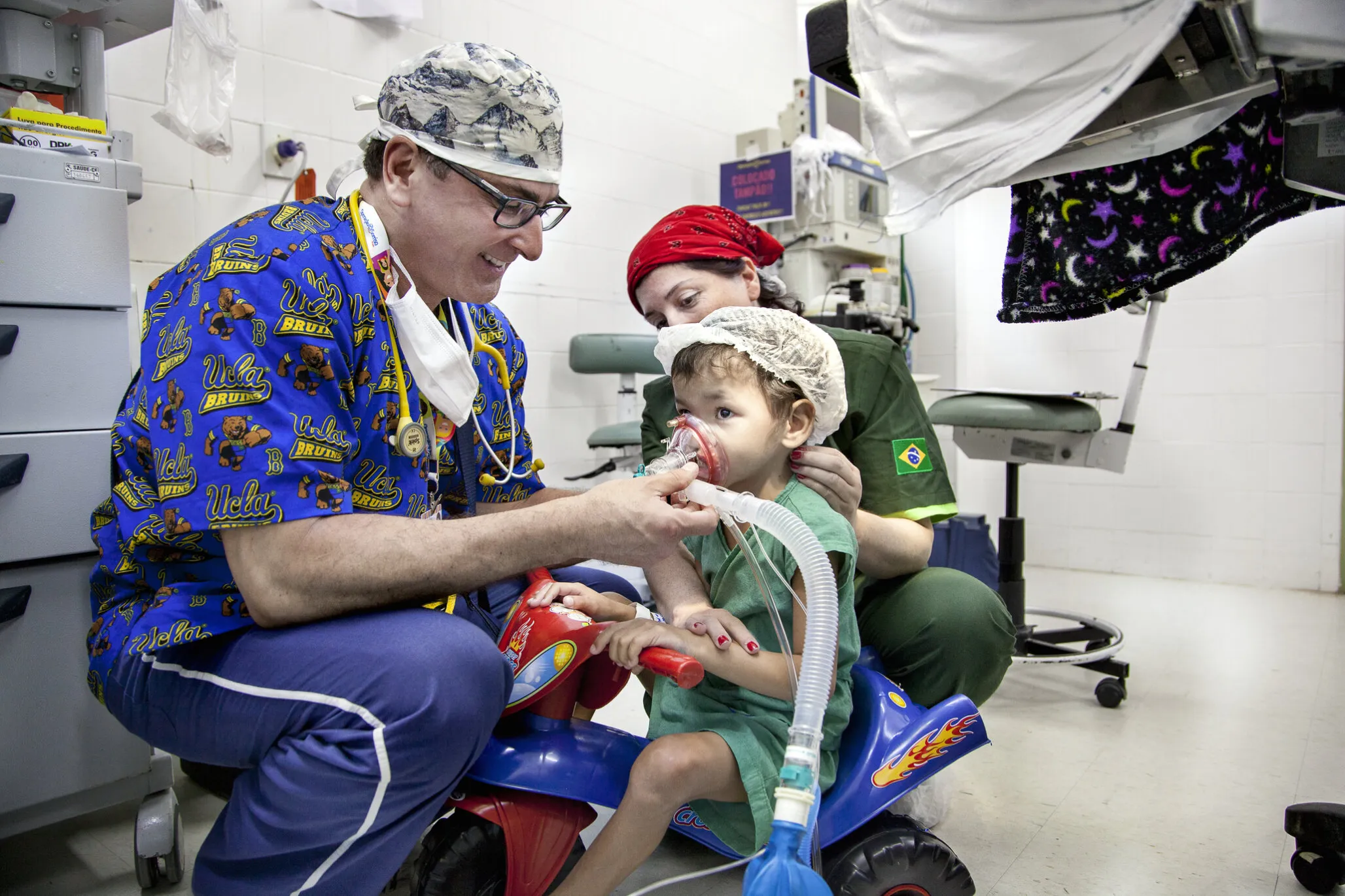
Dr. Marcelo Teixeira dos Santos of Brazil added: “We have many critical situations, and we need to act very quickly in a safe way…
“The anesthesiologist’s role is fundamental and crucial in situations like bleeding, difficult airways and airway obstruction. Fortunately, those situations aren’t very frequent, but they are urgent, and our role is crucial for a successful end,” said Marcelo, who’s worked at the Federal University of Rio de Janeiro for 26 years and served on 19 Operation Smile ongoing surgical programs.
“With Operation Smile [programs], I’m always learning how to manage critical situations, especially because we are working in a different environment than our regular work.”
Patients aren’t the only people our volunteer anesthesiologist serves on our medical programs. Key agents of Operation Smile’s commitment to building surgical capacity where we work, they also host educational lectures and hands-on training for local medical professionals during medical programs. Anesthesia training is also incorporated into our surgical training rotations in Ethiopia, Rwanda and Madagascar – places in dire need of surgical workforce development.
Like every member of the Operation Smile medical volunteer community, showing compassion for patients and their families is a close second to safety.
“On every [program], I am able to identify a few kids that face problems greater than the rest,” said Dr. Chris Erkmann, an anesthesiologist of 33 years who works at Mercy Hospital in St. Louis. “Perhaps it’s the nature of their condition, their family’s lack of acceptance or the terror they face – all of these are challenges that I accept in trying to relate to them – to show them the love, compassion and acceptance that I’m willing to share.
“With only a few minutes of opportunity, I do my best to work with them pre-operatively to gain their confidence, then guide them through a safe anesthetic,” added Chris, who’s attended 15 Operation Smile ongoing surgical programs. “I then visit with them post-operatively and hope that I was able to have a positive impact on them.”
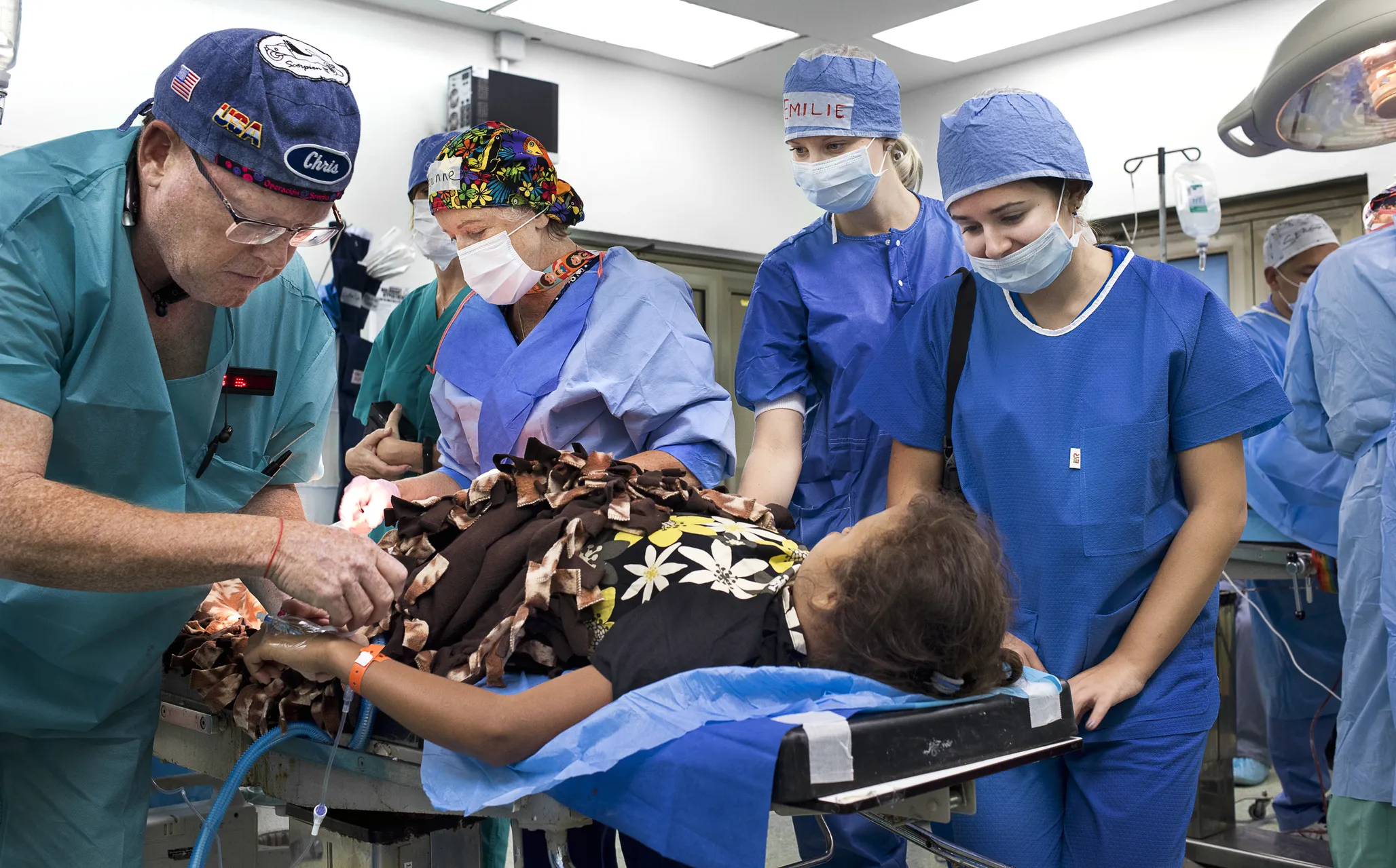
*Global Standards of Care © 2006, 2015 Operation Smile, Inc. All Rights Reserved.






